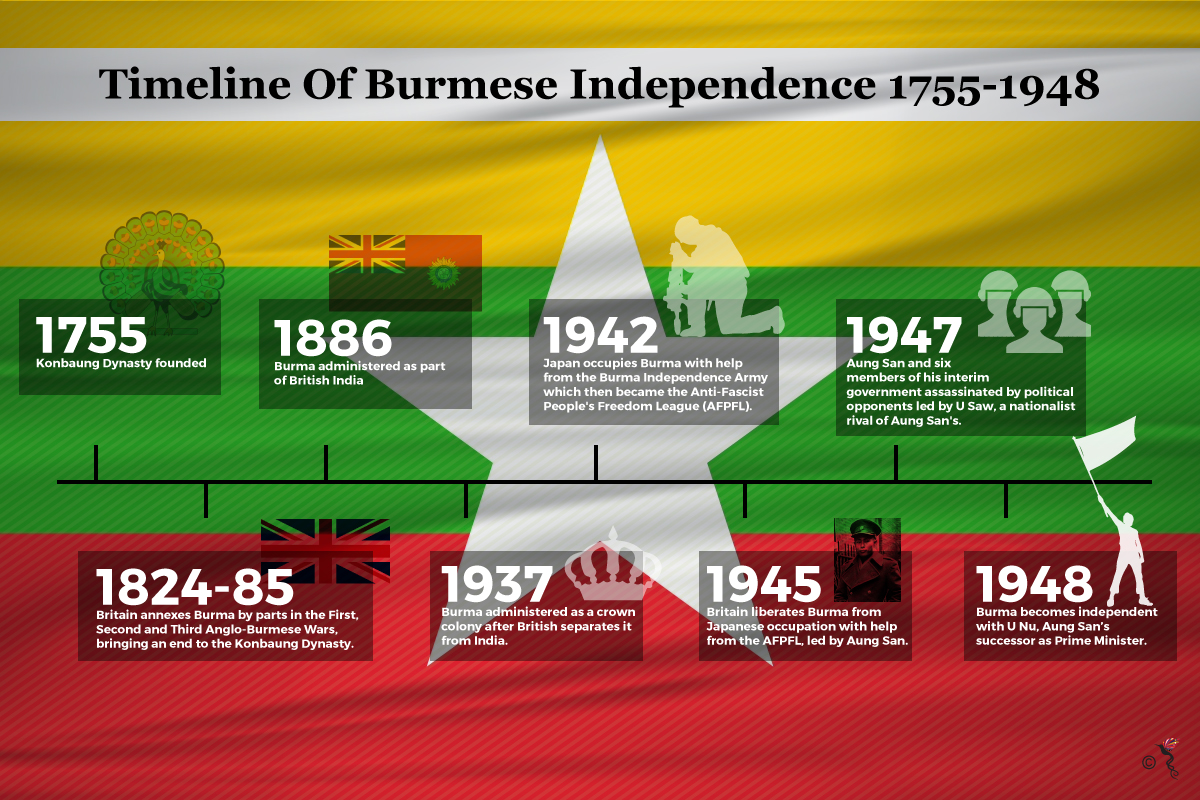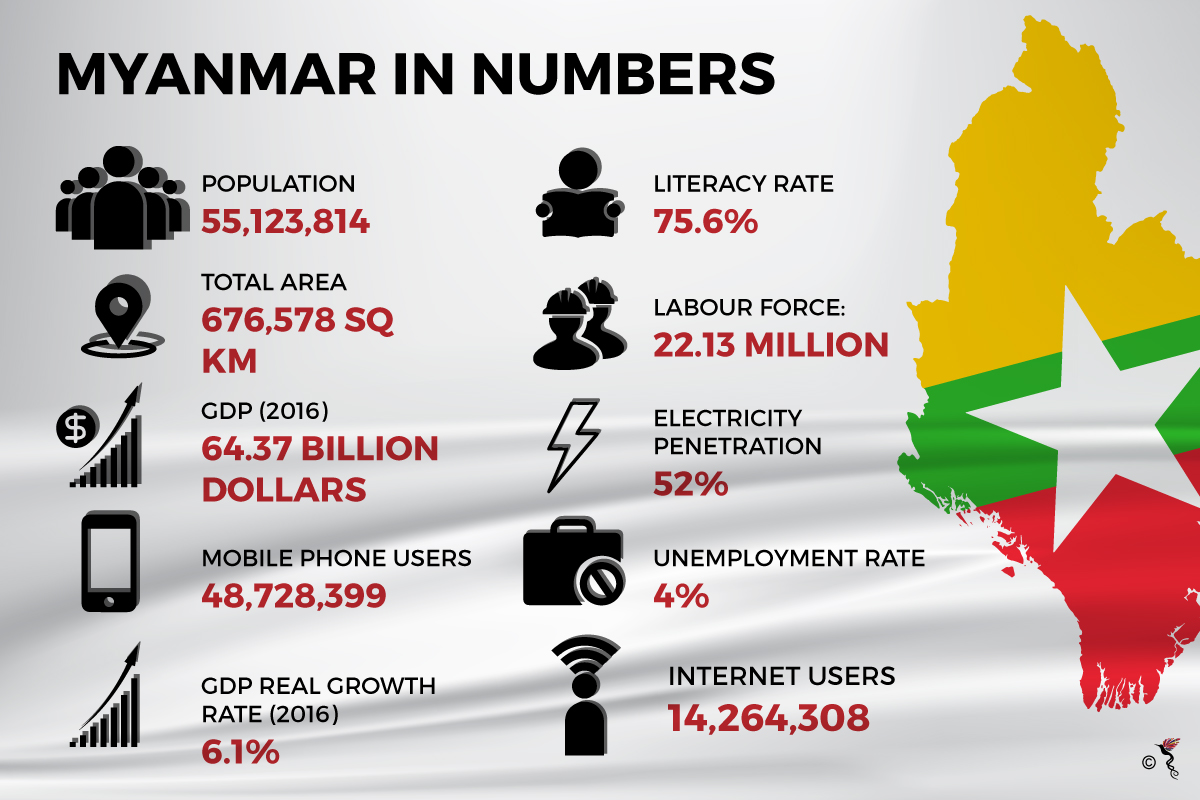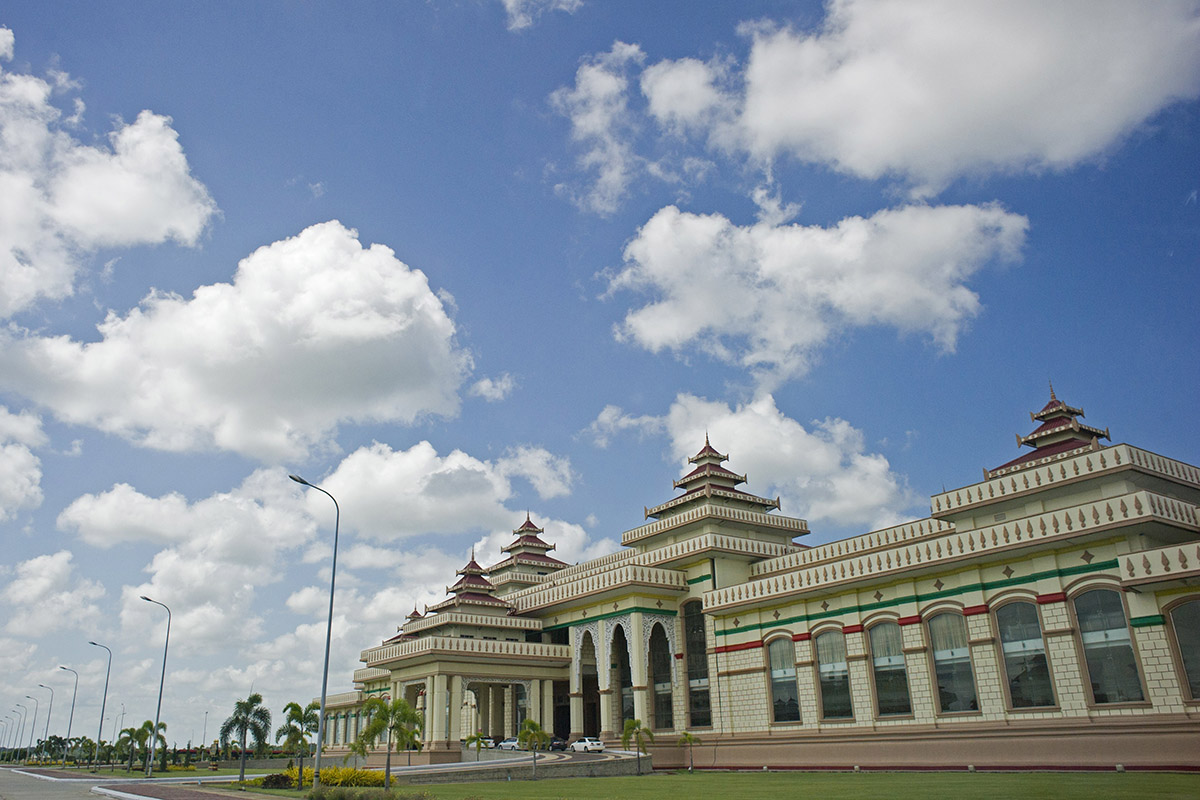At 4:20 am – a time which was deemed auspicious by a Burmese astrologer – on the 4th of January 1948, a new nation was born.
Myanmar celebrates the 70th anniversary of its independence from the British today. In that time, the fledging nation underwent trials and tribulations of early statehood, but continued to persevere to become one of the most formidable frontier economies in the region.
The thorns and roses of history
Before British rule, the Burmese region was governed by the Konbaung Dynasty. After the Third Anglo-Burmese War, the dynasty finally came to a complete end in 1885 and the following year, it was administered as part of a province of British India. Imperial Britain had previously annexed parts of Burma in the first and second Anglo-Burmese wars. In 1937, Burma was administered separately by the Burma Office which was under the purview of the Secretary of State for India and Burma.
The 1930s also saw the rise of anti-imperialist student movements. One of its prominent leaders, Aung San saw immense success in garnering public support for anti-British causes and rose to prominence in the fora of national Burmese politics. He was the President of the Anti-Fascist People's Freedom League (AFPFL) – a political alliance which fought for Burmese independence – and in January 1947, successfully negotiated an agreement with the British to grant Burma full independence. However, he was assassinated six months before Burma was due to be independent when an opposition group gunned him and several other likeminded politicians in July 1947.
Nevertheless, Burma became an independent republic on the 4th of January 1948. Its first President was Sao Shwe Thaik – a well-respected political figure of the Shan ethnic group – and U Nu – who replaced Aung San as President of AFPFL – was its first Prime Minister.

In 1962, U Nu was ousted in a military coup by General Ne Win. Ne Win’s Burmese way of socialism threw the country into isolation. Severe economic conditions triggered anti-government riots and in 1989, martial law was declared, and Burma’s was renamed to Myanmar.
In 1990, the opposition National League for Democracy (NLD) led by the icon of democracy, Aung San Suu Kyi – daughter of Aung San – won a landslide election victory. However, the results were ignored by the military junta and in 1995, she was placed under house arrest. She was only released in 2010 and five years later, she led the NLD to victory in parliamentary elections. The following year, she was sworn in as Myanmar’s first democratically elected State Counsellor – a de facto head of government position due to a technicality in the constitution that disallows her from becoming President of Myanmar.
Myanmar: Present and future
Despite the junta’s hawkish eyes on political and economic development of the country, Myanmar has much to be proud of.
Since the start of the millennium, its Gross Domestic Product (GDP) has grown seven-fold and its projected economic growth for 2018 is at an enviable 7.2 percent according to World Bank data. Although still a lower middle-income nation, Myanmar has taken steps in the right direction to eradicate poverty. Poverty levels poverty declined from 32.1 percent in 2004/05 to 25.6 percent in 2009/10 and 19.4 percent in 2015.
As one of the fastest growing economies in the Association of Southeast Asian Nations (ASEAN), Myanmar has also hopped on the bandwagon of the Belt Road Initiative (BRI). China is an incredibly important investor in Myanmar especially in infrastructure development and energy. Approximately 10 billion dollars of Chinese investment will be pumped into developing a deep seaport, a trading estate and special economic zone in Kyaukphyu in Myanmar’s Rakhine State.

In a recent visit to Myanmar last November, Chinese Foreign Minister Wang Yi proposed an economic corridor with Myanmar which would aid the ASEAN country’s development plans. The planned corridor would extend from China's Yunnan Province, to the central Myanmar city of Mandalay and then east to Yangon and west to the Kyaukpyu special economic zone.
The energy sector is also hiding immense potential especially in hydropower. Estimates by the Asian Development Bank (ADB) put the hydropower potential in terms of installed capacity at 100,000 megawatts (MW). Myanmar’s economic liberalisation in 2011 saw an uptick of economic activity in the country and an increase in energy consumption. According to a report by the ADB, to combat the increase, “the government shifted its policy toward increasing domestic energy supply and improving policy frameworks to encourage greater investment in the energy sector.” Herein, lies a vast opportunity for extensive international assistance especially via public-private partnerships.
Tourism is also burgeoning in Myanmar with investment help from the government. Home to a myriad of ancient and Buddhist architectures, the country has become a lure for backpackers and history buffs alike. In early December, the Central Bank of Myanmar approved the opening of the Myanmar Tourism Bank which will begin formal operations in six months. The bank will be useful in providing targeted financial assistance to hoteliers, tour company operators and other agents in the hospitality industry to improve their businesses.
Positive developments aside, the elephant in the room needs to be addressed – the humanitarian crisis engulfing the northern state of Rakhine in Myanmar. An exodus of refugees fleeing Myanmar’s brutal army has put the country on the map for all the wrong reasons. However, State Counsellor, Aung San Suu Kyi who had been condemned by the international community for lack of action has now taken steps to resolve the crisis. The initiation of a repatriation plan with Bangladesh – though met with criticism from some quarters – is nevertheless a step in the right direction.
As Myanmar turns 70, she has a lot to reflect on her past as the path forward is charted. Yes, the country may have gone through a sullen history marred by instances of violence and non-democracy, but the way forward is bright. Maybe, someday the junta will relax its grip and falter to the doldrums of history. But the citizenry has demonstrated their resolve in ensuring nothing stands in the way of their nation’s development. The embrace of economic liberalisation is a start as more and more people are lifted from poverty. The emergence of a strong middle-class will strengthen society and hopefully improve civic consciousness.
Myanmar has a long road ahead and wish her all the best. Happy Independence Day!
Recommended stories:
